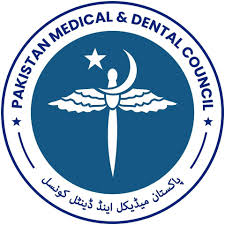Conceptualization and development of professionalism among general surgical residents
Keywords:
Professionalism, Surgical residents, Attributes, Development, BarrierAbstract
Background: Medical professionalism is the association among doctors, patients and the general public as the whole. This study explores how development of attributes of professionalism is conceptualized by postgraduate surgical residents in a teaching hospital in Pakistan.
Study design: Phenomenological qualitative study in constructivist paradigm.
Methods: A qualitative study was conducted in department of general surgery, Jinnah Hospital Lahore, Pakistan from June 2017 to July 2018. Purposeful homogenous sampling technique was used to include 15 final year residents, being trained in four surgical units, as research participants and sample size was based on data saturation. After taking informed consent, 15 semi structured one on one interviews were conducted. Audio taped, transcribed and analyzed through thematic analysis. The codes developed after the first interviews were refined in the follow-up interviews and latest ideas extracted until saturation. Where needed researcher gave some questions in follow-up to clarify the views of participants.
Results: Three broad themes identified were “attributes of professionalism”, “ways to develop professionalism” and “barriers to development of professionalism”. The professionalism attribute conceptualized by the residents included altruism, respect for others, accountability, excellence, duty, confidentiality, commitment, and honor and integrity. The participants felt that professionalism develops maximally through observation; mentorships and role modeling; self-learning along with innate behavior and family training. Absence of a professionalism curriculum, lack of supervision along with workload and long duty hours were deemed as barriers to professionalism development.
Conclusion: Inculcating medical professionalism among General Surgery residents requires comprehensive strategy including didactic sessions to improve professionalism concepts, providing a strong mentorship and role models and providing improved working conditions including reduced workload and duty hours.
Downloads
Published
How to Cite
Issue
Section
License
The Journal of Fatima Jinnah Medical University follows the Attribution Creative Commons-Non commercial (CC BY-NC) license which allows the users to copy and redistribute the material in any medium or format, remix, transform and build upon the material. The users must give credit to the source and indicate, provide a link to the license, and indicate if changes were made. However, the CC By-NC license restricts the use of material for commercial purposes. For further details about the license please check the Creative Commons website. The editorial board of JFJMU strives hard for the authenticity and accuracy of the material published in the journal. However, findings and statements are views of the authors and do not necessarily represent views of the Editorial Board.


















